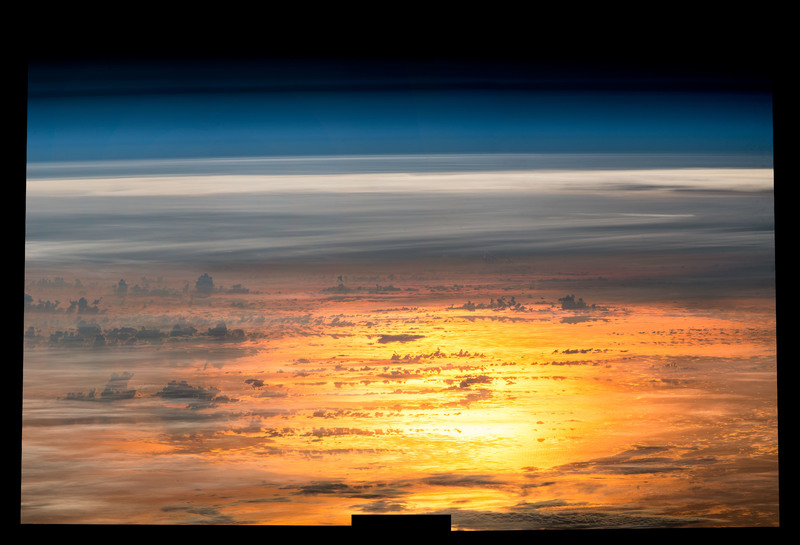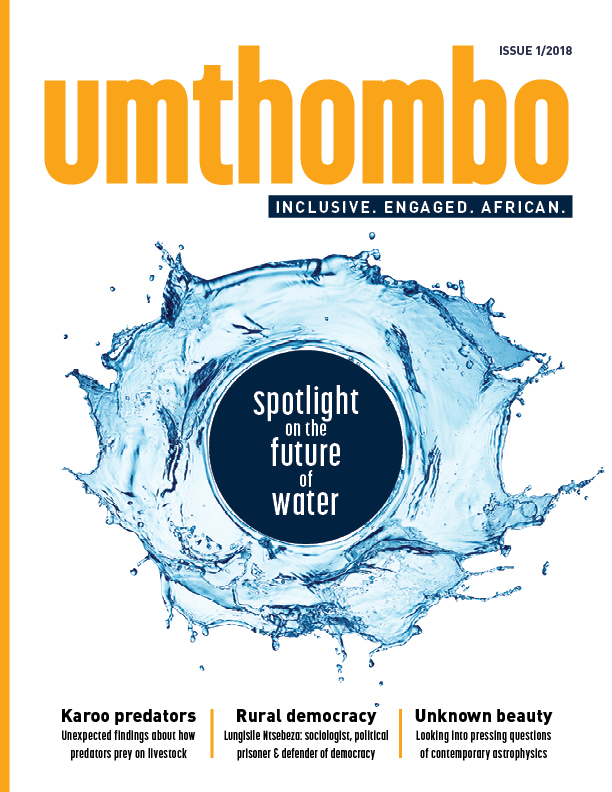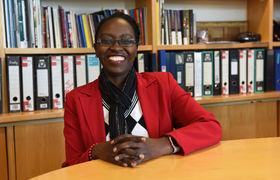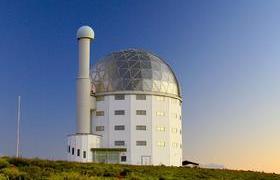What ocean and atmosphere modelling can tell us about climate and weather
01 July 2018 | Story Ambre Nicolson. Photo NASA Read time 5 min.
According to recently appointed SARChI chair and oceanographer, Professor Mathieu Rouault, studying patterns of how the ocean and the atmosphere interact not only improves weather forecasting but can help us to better predict and ameliorate the social impact of climate events.
“Modelling is an excellent tool to understand the mechanisms linking the interaction between our oceans and the atmosphere to our weather and climate,” says Rouault. “Take the phenomenon of El Niño in the Pacific Ocean, which is playing a part in the current droughts in southern Africa.”
According to Roualt, modelling, when applied strategically, can be used to predict climate impact and therefore help to mitigate the effects of natural climate variability or climate change on human societies. As examples of the kind of social and economic impacts he is talking about, Rouault points out that in the 2015 to 2016 drought, inflation of food prices rose 20%, 100 000 cattle died, maize production fell by 50% and it was triggered by El Niño and properly forecasted.
Rouault is now looking forward to using his appointment to the renewed SARChI chair in ocean–atmosphere modelling to test and develop models specific to our oceans. “This includes gaining a better understanding of the effect of the Agulhas Current on extreme weather conditions and the creation of an aquaplanet model – where only the oceans are modelled, without including the continents – to better understand the role of the current in regional weather patterns, and an in-depth exploration of how El Niño affects local climate conditions.”
Modelling, when applied strategically, can be used to predict climate impact and therefore help to mitigate the effects of natural climate variability or climate change on human societies.
Roualt’s second aim for the chair is to develop the modelling capacity of African students.
“I already have a cohort of six doctoral students from four African countries; the research chair also helps to create two positions for postdoctoral fellows. This will enable students to continue their studies while finding another postdoctoral fellowship in the best institutions around the world.” Mathieu Rouault is also co-director of the Nansen Tutu Centre for Marine Environmental Research, a joint initiative between Norway and South Africa that is based in UCT’s Department of Oceanography. Together with UCT and the Nansen Tutu Centre, Rouault is looking forward to collaborating with ocean and climate modellers from Japan, Norway, France and Germany.
Modelling can tell us about climate events that have happened in the past as well as events in the future. Rouault is looking forward to continuing work on his hypothesis that our local Agulhas Current had a part to play in the survival of Homo sapiens through the penultimate ice age.
“It is technically difficult to model, but feasible, and it will take some time to implement,” Rouault says. “But it is a very exciting idea and one that could show that the effects of ocean and atmosphere have always had a big impact on humankind.”
 This story was published in the inaugural issue of Umthombo, a magazine featuring research stories from across the university.
This story was published in the inaugural issue of Umthombo, a magazine featuring research stories from across the university. Umthombo is the isiXhosa word for a natural spring of water or fountain. The most notable features of a fountain are its natural occurrence and limitlessness. Umthombo as a name positions the University of Cape Town, and this publication in particular, as an undepletable well of knowledge.
Read the complete first issue online or subscribe and receive new issues in your inbox every few months.
 This work is licensed under a Creative Commons Attribution-NoDerivatives 4.0 International License.
This work is licensed under a Creative Commons Attribution-NoDerivatives 4.0 International License.
Please view the republishing articles page for more information.










